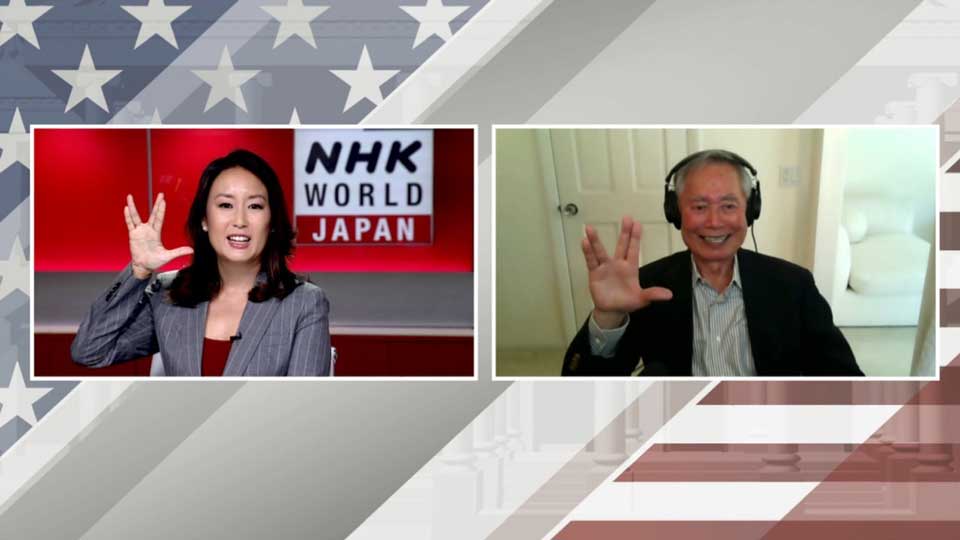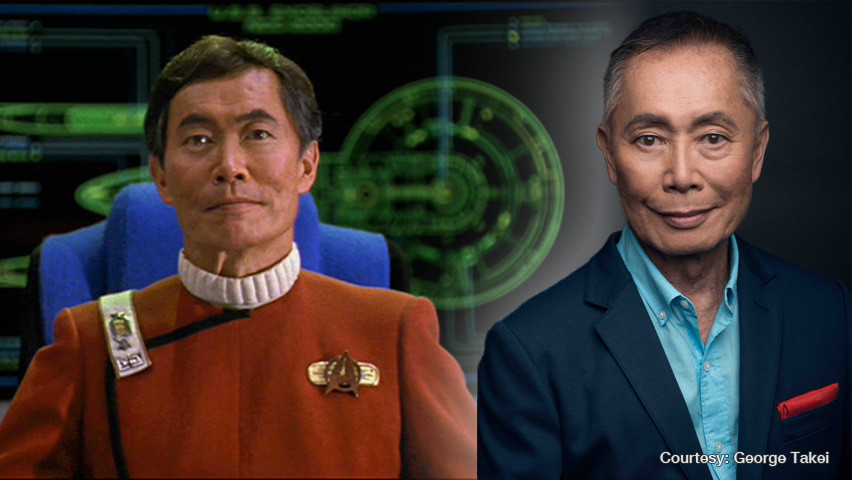Takei's Childhood—a "dark time in history"
After Imperial Japan attacked Pearl Harbor in December 1941, President Franklin D. Roosevelt issued an executive order that forced the Takeis and about 120,000 other Japanese Americans to relocate to internment camps. They were sent away with no trials, due process or civil rights.
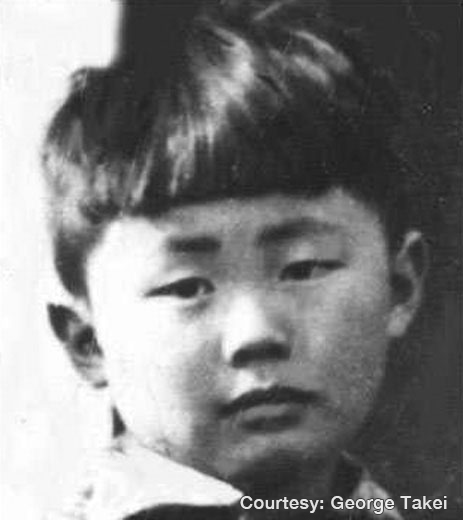
Takei was 5 years old when soldiers forced him and his family to abandon their California home at gunpoint. Troops herded them to a racetrack that was converted to a processing center. Their crime? "Looking like the people who attacked," Takei says. He was born in the United States. So was his mother. His father was born in Japan, but he emigrated to San Francisco as a child and went to college there. George recalls that, overnight, he and his family were looked at with fear, suspicion, and outright hatred.
From the processing center, the Takeis were moved to the Rohwer War Relocation Center in Arkansas and then to the Tule Lake Segregation Center in California, where, altogether, they spent about three years of their lives. Takei says the camps were "prisons" where the inmates were constantly watched by military guards and surrounded by barbed-wire fences and surveillance towers. Looking back, he can still remember soldiers pointing machine guns at him when he went to the latrine.
While the Takeis were at their first camp, the internees were required to take a "loyalty questionnaire." Most of the questions were fairly innocuous, but Takei says two stood out because they were worded in a way that, no matter how internees answered, they would be in trouble. One asked if they were willing to serve on combat duty wherever ordered. Answering "yes" would have meant that Takei's parents must abandon their three young children and bear arms to defend a nation that was imprisoning their family. The other asked if they would forswear any form of allegiance to the Japanese emperor. Takei says his family had never thought about obedience to a foreign power because they were Americans. His parents felt the questionnaire was "degrading," so they answered "no" to both questions. That led to their relocation to the second, harsher camp for those categorized as "disloyal."
Drawing inspiration from his father
Despite extreme adversity in the camps, Takei says he was able to survive his ordeal thanks to his parents. He describes his father as an extraordinary man who not only maintained a sense of order and humanity, but helped other families settle in the camps. Even after they were freed, the Takeis continued to struggle; they lived impoverished lives in a low-income neighborhood in LA. Takei says it was so "horrific" that his 4-year-old sister begged her mother to go back "home" behind the fences.
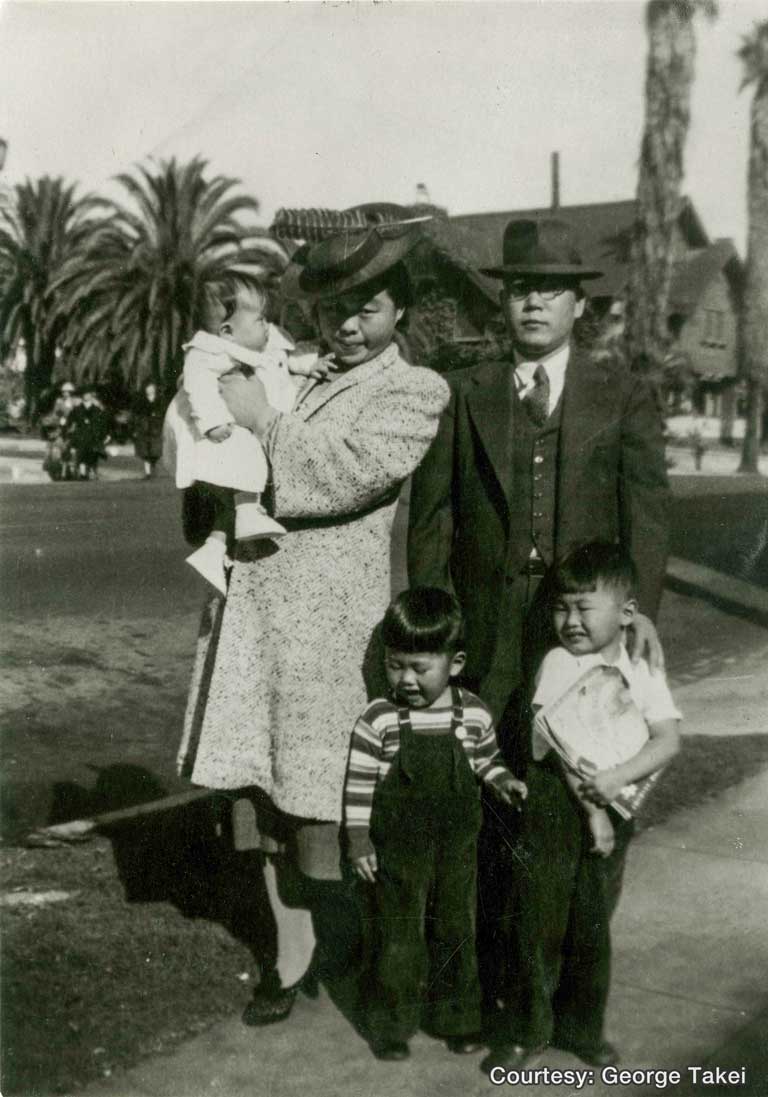
Takei's father was determined to improve his family's living conditions and provide a promising future for his children. He started out as a dishwasher before opening his own dry-cleaning shop, and eventually, with a shrewd sense of timing, built a real estate business.
Finding passion in activism
As a teenager, Takei's passion for activism grew. His father's life experiences inspired him to fight for justice and equality for all. According to the elder Takei, the US government was able to successfully implement the internment program because Japanese Americans didn't have leaders active in politics and society outside their community. To prevent another tragedy from happening again, his father said, "People have to participate in this participatory democracy. We have to support the good candidates or the good issues. And we not only give them our vote, but we give them our time and volunteer to support them."
During the civil rights movement, Takei marched with Martin Luther King Jr.—he fondly remembers shaking his hand, which he describes as a "thrill." And when the US got involved in the Vietnam War, Takei, along with likeminded actors such as Jane Fonda and Donald Sutherland, opposed the war and worked to drive home a message of peace.
Takei's activism today
Takei finds the current political climate troubling and has been deeply disturbed by President Donald Trump's divisive actions—for example, calling the coronavirus the "China virus," the executive order often referred to as the "Muslim travel ban," and the separation of migrant families at the US southern border. He says the injustices remind him of his childhood during a "dark time in history."
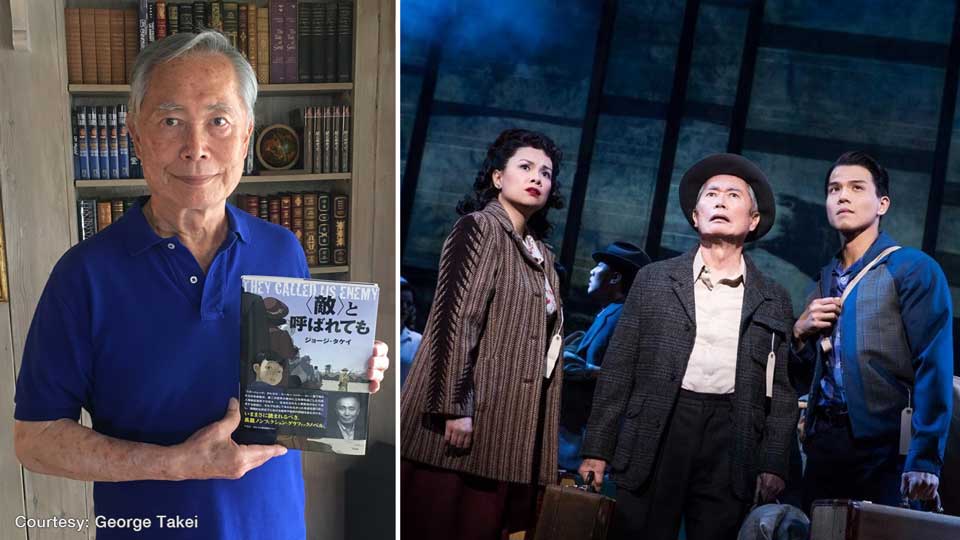
Inspired by Takei's childhood, the Japanese production of the Broadway musical Allegiance will open in Japan in March. (right)
But he's not giving up his fight for social justice. He uses his gigantic platform on social media for advocacy. A whopping 9 million people follow him on Facebook, 3 million on Twitter and more than a million on Instagram. Before the presidential election, Takei actively urged his followers to vote, trying to impart his father's hard-earned wisdom: Changes are possible when people participate in our participatory democracy. He remains resolute and is inspiring people to join "the larger family of enlightened people."
